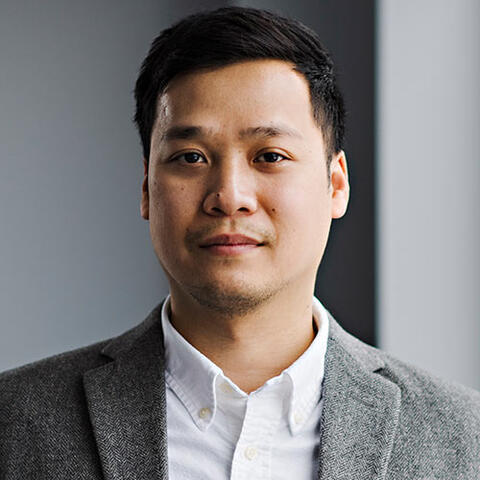
Dispelling myths about refugees and their life experiences
Waterloo English professor wins prestigious Polanyi Prize to continue to examine the shared connections among Vietnamese, Syrian and Mennonite refugees

Waterloo English professor wins prestigious Polanyi Prize to continue to examine the shared connections among Vietnamese, Syrian and Mennonite refugees
By Kira Vermond University Communications
Vinh Nguyen
Professor, Faculty of Arts
When the heartbreaking photo of Alan Kurdi, the drowned three-year-old Syrian boy, made global headlines in 2015, it galvanized many Canadians into action.
But for Vinh Nguyen, an English professor in the Faculty of Arts, the moment signaled something else: a time for former Vietnamese refugees to contemplate how their own memories of displacement and loss connect them to Syrians.
Nguyen is a refugee himself, one of the three million people who fled Vietnam, Cambodia and Laos after 1975, during a period of great upheaval and violence. As a small child, he spent time at a Thai refugee camp before eventually coming to Canada.
Today, Nguyen, also a professor of humanities and East Asian studies at Renison University College, is quick to point out that his family’s migration is only one chapter of his life’s story. Nguyen’s work examines how refugee narratives are often depicted solely in terms of trauma, rather than describing them as they truly are: richly textured and full of fears, hopes and day-to-day frustrations and joys.
“In the media there’s a sense that refugees are these people who are poor, helpless and at the edge of death,” he says. “That’s true, of course, but these people were also students, artists, writers, professors and waitresses. We need a more complex narrative.”

Researching the life stories of Southeast Asian refugees, professor Vinh Nguyen discovered a photo of his mother in a folder of aging news clippings.
Now, with his prestigious 2017 Polanyi Prize in Literature win, Nguyen will be able to continue exploring the shared historical and political connections between three “waves” of refugees in the postwar era. He’s interviewing recent refugees from Syria, those from Vietnam, and survivors of a major wave of Mennonite immigration to Canada during and after the Second World War. By collecting their stories, he plans to use that material to dispel myths that refugees are apolitical or passive.
For instance, Vietnamese refugees in Toronto advocated on behalf of new Syrian refugees and also sponsored them, while Mennonites supported Vietnamese refugees during their migration wave in the 1970s and 1980s. In a sense, a refugee never truly stops being a refugee – which is not necessarily a negative thing.
“I think for me, it’s productive to think of the condition of ‘refugee’ as sticking with us in some way that can enable compassion and politics, and how we live our lives in a very different way,” says Nguyen.

Read more
Meet the Waterloo alumnus named on the 2019 Forbes 30 Under 30 Asia list

Read more
Waterloo startup also wants to help corporate volunteer programs become more engaging for the modern workforce

Read more
Waterloo researcher links culturally inclusive teams to an increase in revenue and productivity
The University of Waterloo acknowledges that much of our work takes place on the traditional territory of the Neutral, Anishinaabeg, and Haudenosaunee peoples. Our main campus is situated on the Haldimand Tract, the land granted to the Six Nations that includes six miles on each side of the Grand River. Our active work toward reconciliation takes place across our campuses through research, learning, teaching, and community building, and is co-ordinated within the Office of Indigenous Relations.